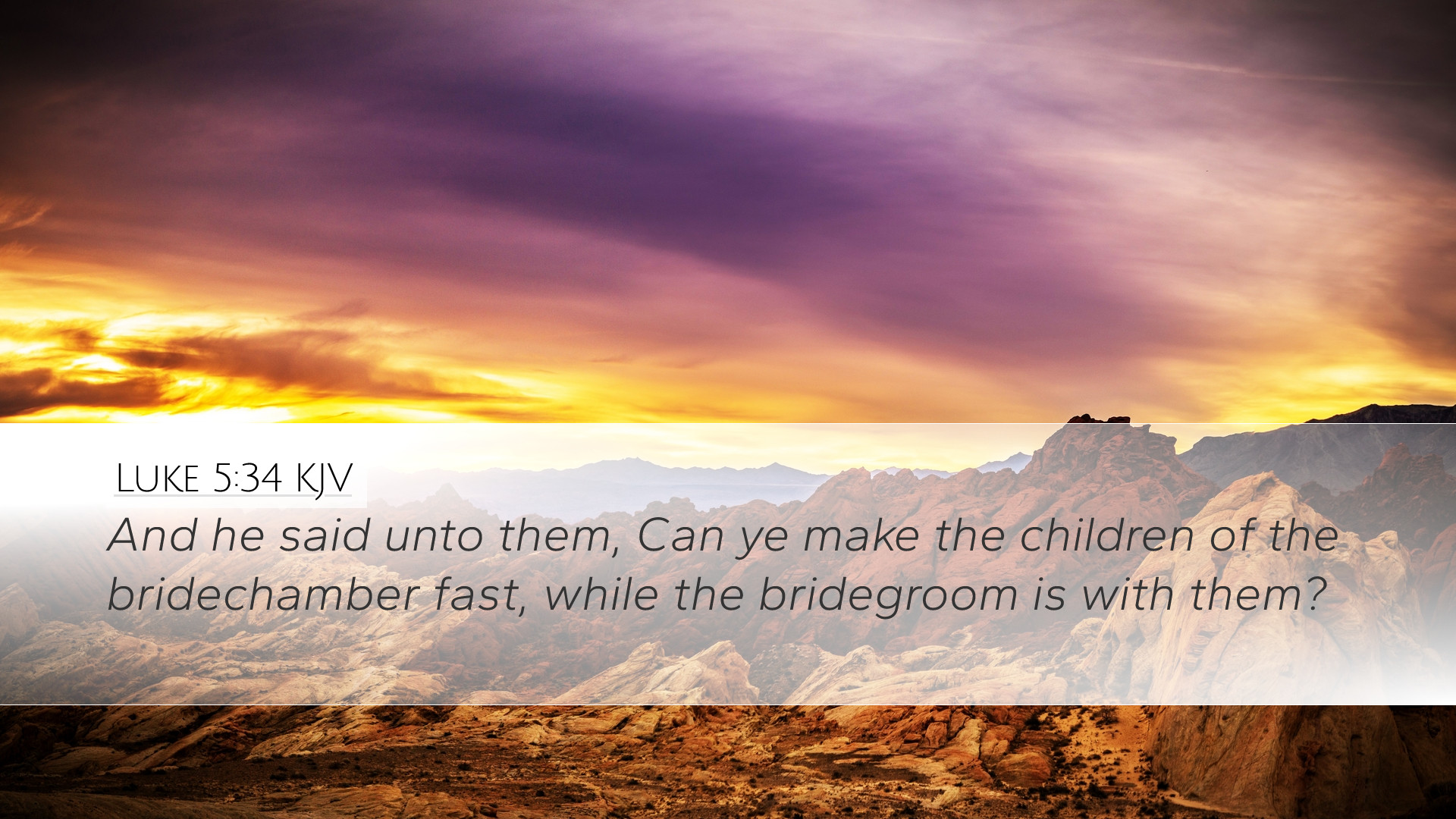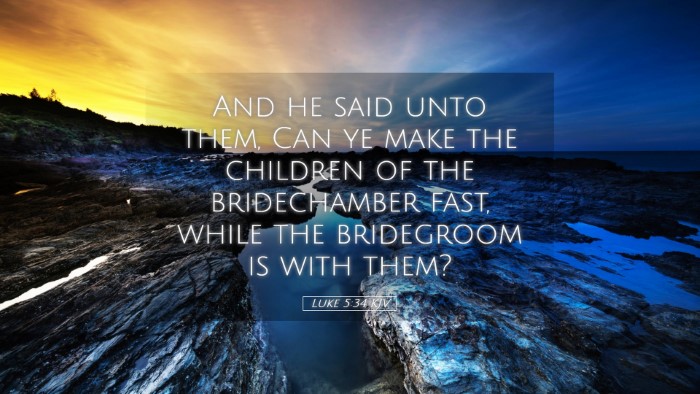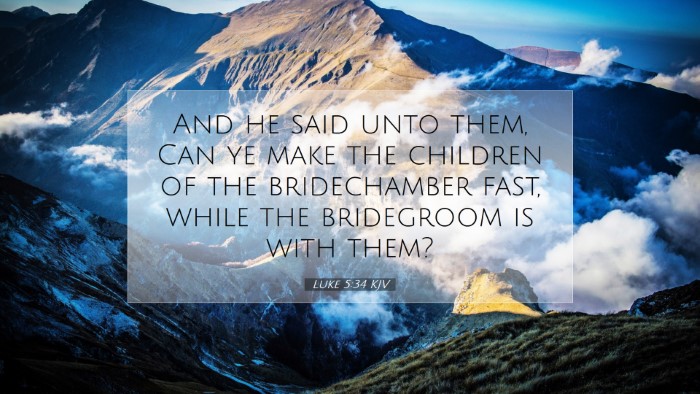Commentary on Luke 5:34
Luke 5:34 presents a pivotal moment in Jesus' ministry, addressing the nature of His mission and the radical shift He brings to religious practices. The verse states:
"And He said to them, 'Can you make the friends of the bridegroom fast while the bridegroom is with them?'" (Luke 5:34, NKJV)
Understanding the Context
This verse is set against the backdrop of Jesus' call of Levi (Matthew) and the subsequent meal with tax collectors and sinners, which prompted criticism from the Pharisees. This criticism sets the stage for Jesus’ teaching about the nature of His ministry.
Insights from Public Domain Commentaries
1. Matthew Henry's Commentary
Matthew Henry emphasizes the metaphor of the wedding feast, which is central to this passage. He highlights that fasting—in the traditional sense of mourning or seeking God earnestly—would be inappropriate while the Bridegroom is present. He explains:
- Presence of Joy: The arrival of Jesus is a time of joy and celebration, akin to a wedding feast. The disciples of Jesus should reflect that joy in their behavior.
- Conditional Fasting: Henry notes that fasting and spiritual disciplines should flow from the heart, shaped by the circumstances and the presence of the divine. The introduction of Jesus marks a new covenant relationship that invites joy rather than mourning.
2. Albert Barnes' Notes on the Bible
Albert Barnes provides a detailed examination of the metaphorical use of the "bridegroom." He argues that:
- Messianic Role: By likening Himself to the bridegroom, Jesus affirms His identity and role as the promised Messiah, drawing a contrast between the old covenant traditions and the new life He brings.
- Fasting as Inconsistent: Barnes highlights that fasting during the presence of the Messiah is illogical; it is important to intimately know the times and seasons of God’s workings. Joyful celebration is more appropriate to the new relationship established through Christ.
3. Adam Clarke's Commentary
Adam Clarke offers a thorough analysis of the cultural implications of the passage. He notes:
- Cultural Context of Fasting: In Jewish tradition, fasting was often linked to mourning. Clarke argues that it is critical to understand Jesus' intention in utilizing the wedding metaphor when addressing the Pharisees and their expectations for solemnity.
- Transition of Relationship: Clarke emphasizes that Jesus is ushering in a new relationship with God that prioritizes communion over ritual, suggesting that the joy found in Christ does not align with the legalistic mourning practices of the Pharisees.
Theological Reflections
Analyzing these insights, we can draw several theological reflections:
- Incarnation and Joy: Jesus' incarnation signifies a profound shift in God's engagement with humanity. The joy of being in the presence of God incarnate challenges traditional views of mourning and ritualistic worship.
- Context of Worship: The appropriate response to God's presence should be defined by joy and celebration rather than rigid adherence to fasting as a sign of solemnity. This invites a reconsideration of how modern worship practices align with the joy offered in Christ.
Pastoral Applications
For pastors and church leaders drawing from this verse, the following applications may be considered:
- Celebration Over Ceremony: Encourage congregations to embrace the celebratory aspects of faith rather than allowing tradition to dictate the posture of worship. Develop worship models that invite joy and community, reflecting the presence of Christ.
- Engaging the Marginalized: As Jesus dined with social outcasts, churches should consider ways to engage with marginalized populations, bringing them into the joy of the gospel.
- Dynamic Relationship with God: Foster a discipleship model that emphasizes a dynamic relationship with Jesus, one that values joy and discovery over mere ritual.
Conclusion
Luke 5:34 provides profound insight into the heart of Jesus' ministry—a ministry characterized by joy, relationship, and a transformative approach to faith. By understanding this verse in light of historical, cultural, and theological contexts, we can appreciate the call to live in the joy of Christ’s presence, reflecting that joy in our worship and community.


